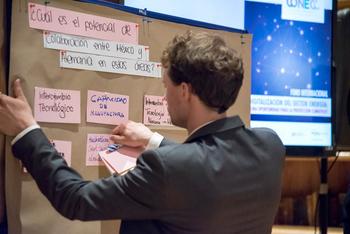Context
By launching its energy reform process and Energy Transition Law, Mexico has initiated the climate-friendly restructuring of its energy sector. The aim is to increase the share of clean energy in the electricity sector to 35 per cent by 2024. With the reform of the country’s climate legislation in 2018, Mexico has also enshrined its national climate protection goals (Nationally Determined Contributions, NDCs) in law within the framework of the Paris Agreement and its reduction targets for certain sectors of the economy. In the international arena, Mexico has also declared its willingness to reduce its greenhouse gas emissions by 2030 by 22 per cent or, with international support and depending on the progress of international climate negotiations, even by 36 per cent relative to the ‘business as usual’ scenario.
Objective
Key climate and energy policy stakeholders in Mexico are able to initiate or implement political and institutional steps to achieve better cooperation in the areas of energy and climate. This is helping Mexico to achieve its NDCs.
